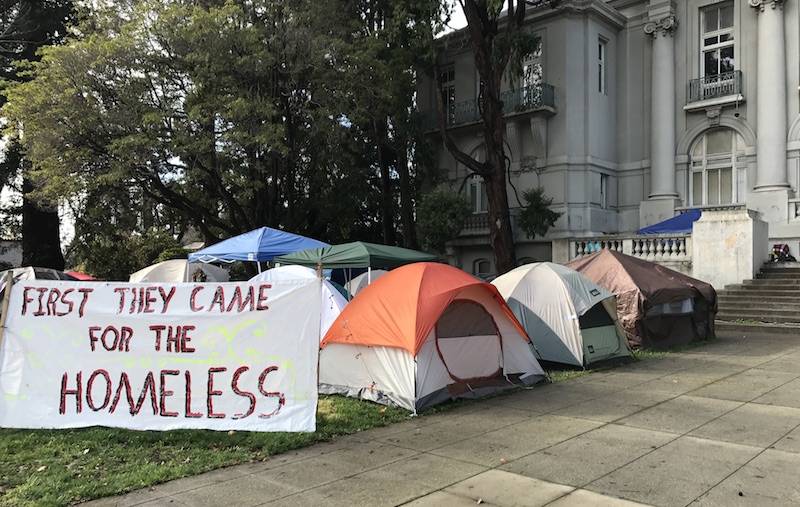Davila said enforcement should be paused until the city has enough daytime shelters and storage lockers for homeless residents to use. She argues developing a system to serve their needs should start with talking to the people who are affected by the ordinance.
“There’s no data: who and why and how we can help. So I think all those things need to happen first before we’d enforce,” she said.
The ordinance was approved last October and regulates what objects are allowed to be placed on walkways or near BART entrances. As Berkeleyside reported at the time:
The new rules apply to any personal belongings that are not for sale and not “in transit,” except mobility devices like wheelchairs and small blankets or cushions. The policy prohibits all other objects on sidewalks in residential districts. In commercial and manufacturing districts, belongings cannot be left unattended for more than two hours or block access to driveways, crosswalks, buses, transit stops, trash cans and other public structures or accessibility features. Objects are also prohibited on the sidewalks on blocks where there is a BART entrance, and by building entrances between 10 p.m. and 7 a.m.
Davila originally abstained from voting on the regulations.
The city has been engaged in a court battle as well over the clearing of homeless encampments and belongings. A weeklong trial ended last week over whether Berkeley targeted the First They Came for the Homeless group for protesting the clearing of homeless encampments, and whether the city owed three men damages for taking and losing their tents, wheelchair tools and clothes. On Friday, a federal jury in San Francisco found the city did not unfairly target the group or unfairly take the men’s belongings.
Earlier this year, after a long fight over people living in RVs on city streets, the City Council also voted to outlaw overnight RV parking in Berkeley — with the caveat that officials would first create an RV permitting system and commit to aiding “priority populations” in their search for permanent housing.
The vote tomorrow night over a possible pause on the sidewalk clearing is expected to be just as contentious.
